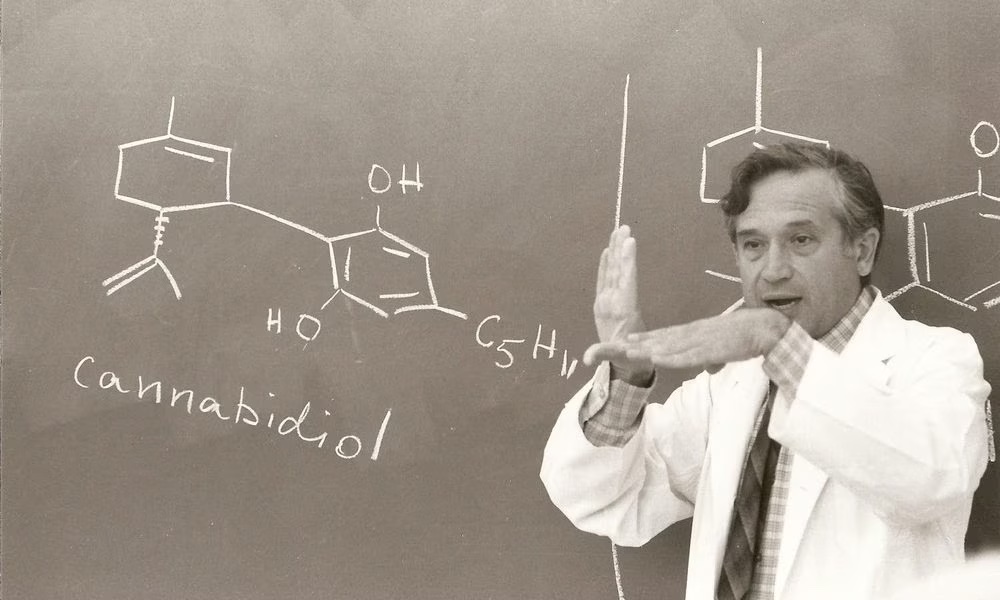When Prof. Raphael Mechoulam began his research on cannabis (marijuana) in the 1960s, it was considered a psychoactive drug with no medical benefits. However, he spent his academic life studying it and became a leading expert on medical cannabis. In this article, we pay tribute to his life and legacy and explore how his work paved the way for groundbreaking studies and the evolution of medical cannabis.
Medical Cannabis: From Psychoactive Drug to Medicinal Benefits
Medical cannabis has come a long way since Mechoulam began his research. Today, pharmacies in Israel sell medical cannabis grown and processed without the psychoactive effects. This form of cannabis provides symptom relief without the intoxicating, mood-altering effects associated with recreational use. According to the Israeli Medical Cannabis Agency (IMCA), over 110,000 license holders can access medical cannabis.
Medical cannabis is available in various forms such as liquid oil, powder, and dried leaves, and is used to relieve severe and chronic pain, Alzheimer’s disease, multiple sclerosis and muscle spasms, amyotrophic lateral sclerosis (ALS), HIV/AIDS, Crohn’s disease, epilepsy and seizures, glaucoma, and severe nausea or vomiting caused by cancer treatment. Low-dose-THC and high-dose CBD have even been prescribed as an effective treatment option for managing symptoms associated with autism, improving the quality of life for both the patient and caregivers.
Mechoulam’s Quest for Cannabis Samples
Cannabis research was easier to conduct in Israel than in the more restrictive US, but obtaining cannabis samples was not always easy. Mechoulam carried five kilos of “superb, smuggled Lebanese hashish” on a bus from Tel Aviv to Rehovot in the hope that he would not be apprehended. Still, his work studying cannabis has had a profound impact on the medical community and continues to influence research in the field.
The Life and Legacy of Prof. Raphael Mechoulam
Born in Sofia, Bulgaria, in November 1930, Mechoulam was the son of a doctor and hospital director and a mother from a wealthy Jewish family. His father was taken by the Nazis to a concentration camp, which he survived. After Communists took over parts of Bulgaria, Mechoulam and his family emigrated to Israel in 1949. Mechoulam earned a degree in chemical engineering and went on to earn a master’s degree from HU in biochemistry, followed by a doctorate from the Weizmann Institute of Science in Rehovot.
After two years of postdoctoral studies at the Rockefeller Institute in Manhattan, Mechoulam returned to the Weizmann Institute for five years and then to HU, where he became a professor and the Lionel Jacobson Professor of Medicinal Chemistry. He was named rector and then pro-rector at HU, posts he filled for a total of six years.
In 1994, Mechoulam was elected a member of the Israel Academy of Sciences and Humanities and was one of the founding members of the International Cannabinoid Research Society and the International Association for Cannabinoid Medicines. He was recognized with a number of significant honors and awards, including the Israel Prize in Exact Sciences – Chemistry twenty-three years ago, and more recently, the Harvey Prize of the Technion-Israel Institute of Technology in Haifa.
Remembering Prof. Raphael Mechoulam
Prof. Raphael Mechoulam was a sharp-minded and charismatic pioneer who dedicated his life to researching cannabis and its medicinal benefits. His work has changed the perception of medical cannabis and paved the way for groundbreaking studies and scientific cooperation between researchers around the world.
As we remember his life and legacy, it is important to acknowledge his contribution to the evolution of medical cannabis. His passion and dedication to research have helped millions of people worldwide, and his influence will continue to inspire future generations of researchers and scientists.
Conclusion
Prof. Raphael Mechoulam was a true pioneer in the field of medical cannabis research, and his contributions have had a profound impact on the medical community. Medical cannabis has come a long way since the 1960s, and Mechoulam’s work studying cannabis helped pave the way for groundbreaking studies and scientific cooperation between researchers worldwide.
Today, medical cannabis is used to relieve a variety of symptoms, from chronic pain to Alzheimer’s disease, and the number of license holders continues to grow. Mechoulam’s quest for cannabis samples and his work studying the plant have helped shape the field of medical cannabis research, and his legacy will continue to inspire and influence the medical community for generations to come.










